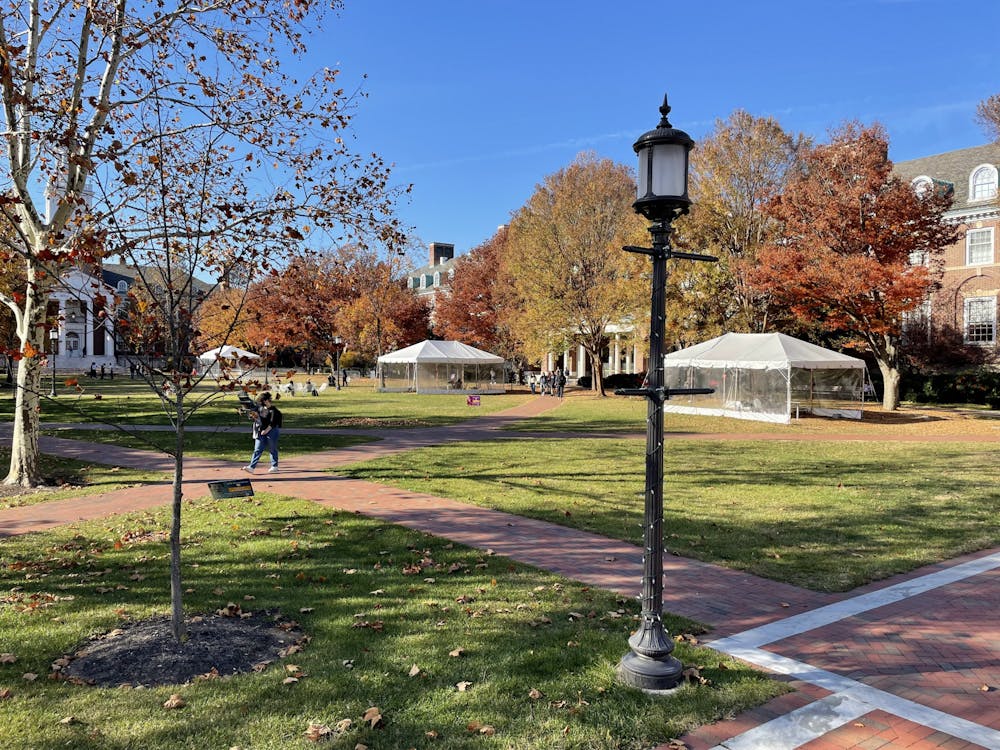The Department of Physics & Astronomy received a $50 million donation from investor and Hopkins alum William H. “Bill” Miller III last month. This donation follows Miller’s 2018 gift of $75 million to the University’s philosophy department. According to an email sent to Hopkins affiliates by University President Ronald J. Daniels, this donation prompted two anonymous donations totaling an additional $25 million.
According to Daniels, Miller’s donation will sponsor faculty appointments and new graduate research and postdoctoral fellowships in hopes of bolstering the department’s research goals. Formerly named after Hopkins professor Henry A. Rowland, the department has been renamed the William H. Miller III Department of Physics & Astronomy.
Timothy Heckman, Dr. A. Hermann Pfund professor and current chair of the department, explained the impact of the donation in expanding the research interests of the department in an interview with The News-Letter.
“It’s a transformative gift... and it's mostly going to be used for people,” he said. “Altogether over the next five years we are going to be adding 13 new faculty, and that’s going to enable us to establish strong roots in all the main areas of modern physics and astronomy.”
The department currently focuses its research on four areas: condensed matter physics, astronomy and astrophysics, high-energy particle physics and plasma physics. According to Heckman, the smaller size of the department at Hopkins compared to physics departments at peer institutions has limited the department’s ability to support research in other cutting-edge fields like biological physics. Heckman hopes the donation, which will create three endowed professorships, will change that.
In an interview with The News-Letter, Rosemary F. G. Wyse, alumni centennial professor in the department, stressed the importance of branching into emerging fields.
“There’s all these extremely interesting areas where we have started to move, but we really need to build up our strength to be competitive,” she said. “We are very strong in the fields we’re in — we have excellent postdoctoral fellows [and] excellent graduate students — but we’re always in real competition with our peers.”
Sophomore physics major Stefan Arseneau told The News-Letter that though he has found opportunities for research in his areas of interest, he hopes the donation will spur research opportunities in atomic physics.
“I would be interested in doing quantum computing, which is not something Hopkins does a ton of. I don’t think we have anyone doing that,” he said.
Wyse shared that the expansion of faculty will create new opportunities for undergraduate enrichment both in and out of the classroom.
“We are expecting that the new faculty that are coming in will be creating undergraduate and graduate courses that will give students an experience of these new areas of physics,” she said. “Of course, they will have their own... lab [and] they will be inviting undergraduates to do research with them.”
In an interview with The News-Letter, sophomore physics major CJ Faulhaber shared that broadening faculty research will benefit students as well.
“A big part of the philosophy for a lot of students is research because that dominates the field,” he said. “More faculty means more available and diverse research opportunities for undergraduate students, which is a big pull for Hopkins in general.”
Faulhaber added that he hopes the expansion of faculty will provide students with more opportunities for undergraduate funding.
Miller’s donation also allocates funding for 10 graduate research fellowships. According to Heckman, graduate students in the department must typically work as teaching assistants for their first two years and can receive funding thereafter. With the new fellowships, selected graduate students will be fully funded from their first year.
Robert Leheny, a professor of physics and incoming department chair, expanded on the significance of these fellowships in an interview with The News-Letter.
“With these Miller graduate fellowships, we’ll be able to offer people an opportunity to come to Hopkins as a graduate student and have the freedom to not have to spend time being a teaching assistant and instead really get involved in research right away [and] have academic freedom,” he said. “If they have their own support, they can choose problems to work on [and] senior advisors to work with without the concerns of financial support.”
Leheny hopes that the fellowships will attract competitive doctoral candidates that might normally choose to attend schools that already provide similar funding.
The Miller donation will also create 10 postdoctoral fellowships, which, according to Leheny, have been on the department’s agenda for decades.
Leheny underscored the unique advantage of recruiting postdoctoral fellows.
“Time in postdoctoral positions... can be among the most productive times in a scientist’s career because they don’t have other responsibilities like teaching that come with a faculty appointment,” he said. “It’s going to add to the fertility of the environment with the fresh ideas and energy that [postdoctoral fellows] bring.”
The department has been reviewing applications for postdoctoral positions and is in the process of releasing decisions for the first round of fellowships for fall 2022.





